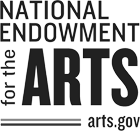Our Mission
The Susquehanna Folk Music Society (SFMS), based in Harrisburg, Pennsylvania, is a nonprofit education and arts organization dedicated to the advancement, promotion and preservation of traditional, contemporary and international folk music and folk culture.
Every year, Susquehanna Folk presents dozens of events featuring artists from around the globe as well as hometown performers. Many of our events have a "hands-on" component that strengthens the connections between music and folks. In addition, SFMS brings folk culture into local schools each year through Arts in Education residencies.
Our People
SFMS is a grass-roots organization that depends on our volunteers, our members, and many community supporters. We are always interested in hearing from folks who want to play an active role in SFMS's future.
SFMS is led by a 13-member Board of Directors, made up of volunteers serving 3-year terms. Several committees (which include board members and other folks) share the work.
SFMS's leadership team also includes a full-time Executive Director; several individuals who serve as Coordinators; a graphic-design/website consultant; and sometimes an administrative intern.
Our Past and Future
The Susquehanna Folk Music Society was born in March 1985 when a small group of interested persons joined forces to keep folk music alive in Central Pennsylvania. Over the years, SFMS has sponsored concerts and dances; festivals small and large; workshops, coffeehouses and jam sessions; apprenticeships, storytelling, shape note singing and traditional craft classes. SFMS is known for the diversity and excellence of its programming, and for the passion of its board members.
Our Commitment
Our vision is to be the premier nonprofit folk music society in South Central Pennsylvania. We are committed to excellence in:
- High quality, affordable programming
- Education about folk music and folk culture
- Financial stability
- Positive audience experience
- Diversity (people, programming and venues)
- Broad geographic and cultural appeal
- Programs accessible to people of all abilities and economic situations.



Brand icons for Facebook, YouTube, Instagram and other social media platforms are the trademark of their respective owners. No endorsement is implied.